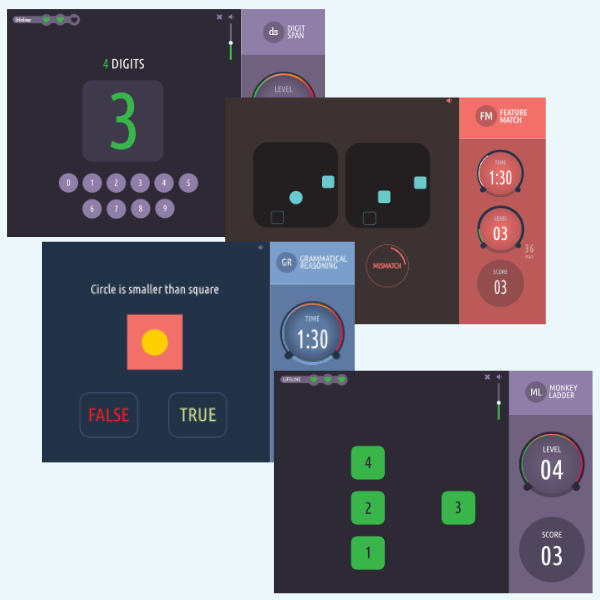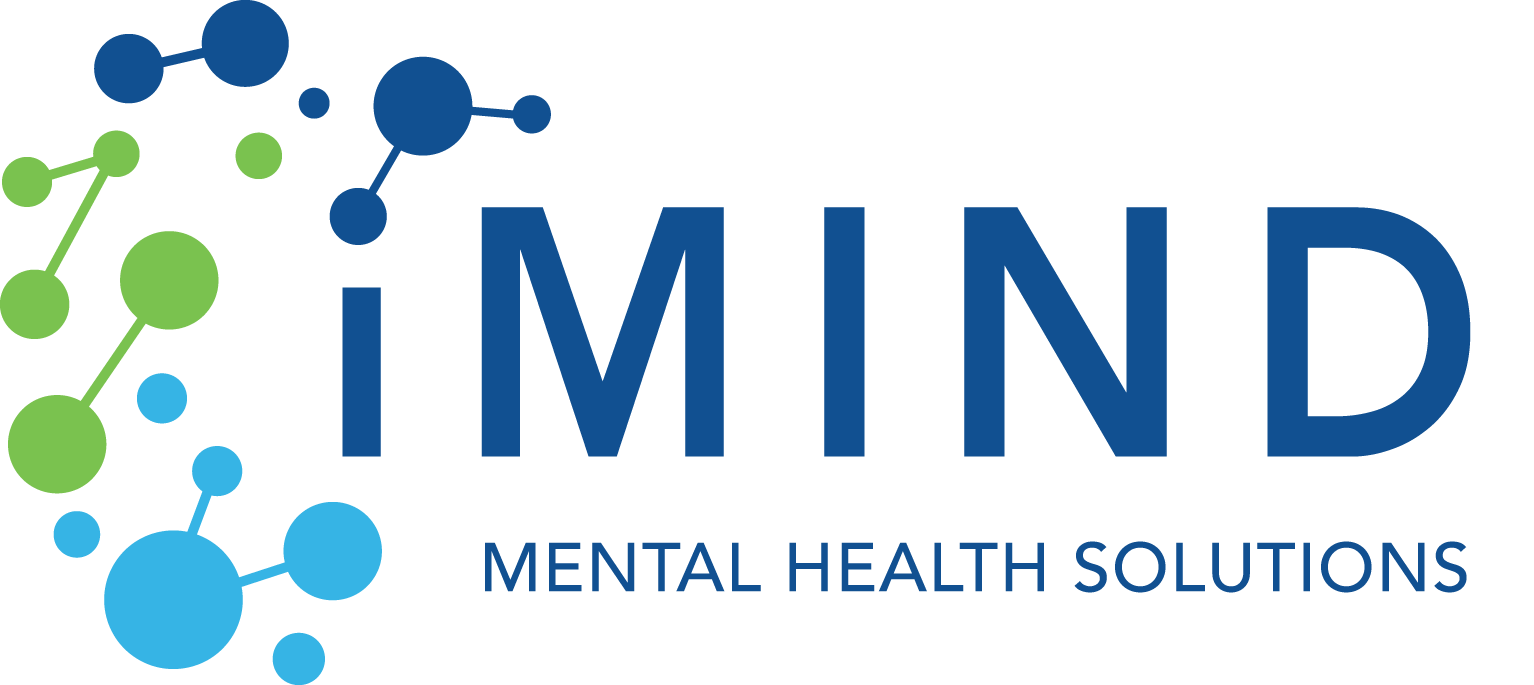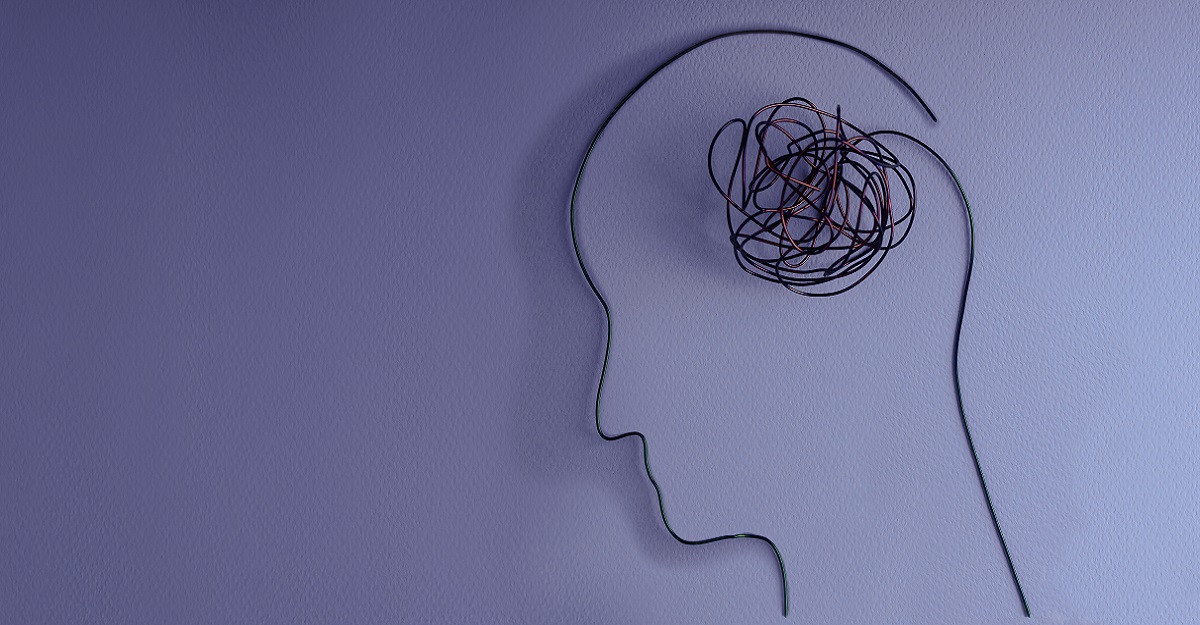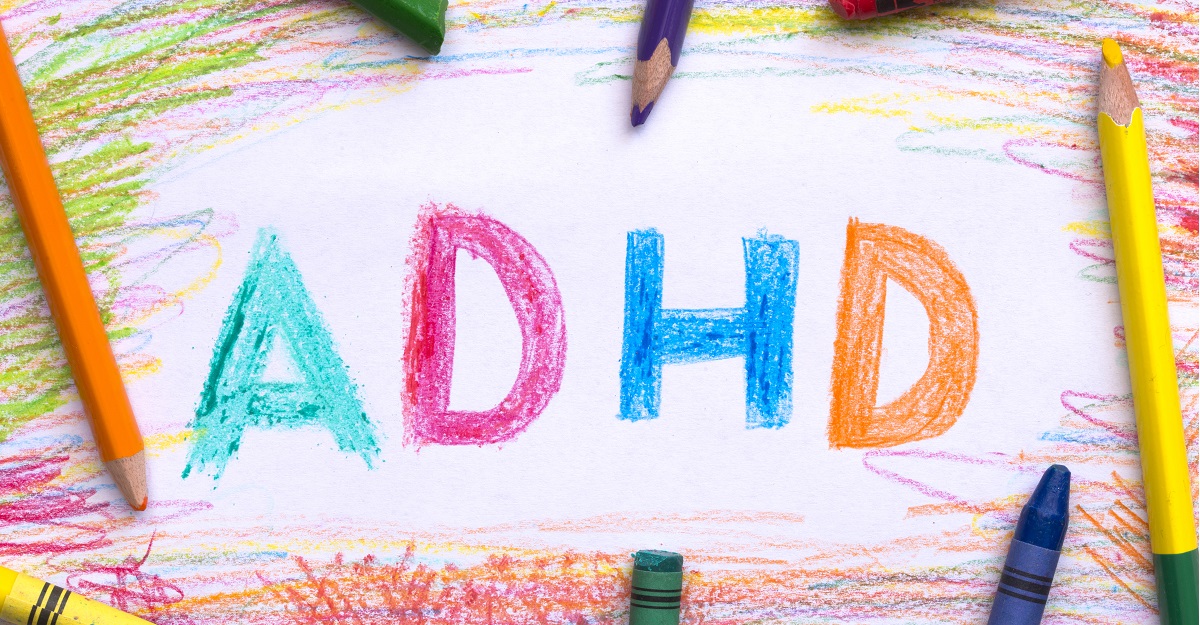Cognitive Testing at iMind
Cognitive testing helps you better understand your brain’s health. As a form of neuropsych testing, it assesses your memory, concentration, verbal skills, and reasoning abilities. Your results are matched with a database of controls to see how your scores compare with others. Cognitive testing can also measure the effectiveness of treatments aimed at improving cognitive function over time.
- Cognitive testing is an objective measure of your memory, concentration, verbal skills and reasoning abilities at a point in time
- A custom treatment plan can be created to address deficiencies
- Your initial results provide a baseline against which your progress can be measured

What is Cognitive Testing?
Cognitive testing is designed to measure your brain’s thinking ability. This involves several skills, including.
- Verbal ability – Your brain’s ability to understand and use language
- Memory skill – The brain’s capacity to acquire, store, and recall information
- Concentration ability – The ability to focus on one item, thought, or subject to the exclusion of all unrelated stimuli
- Reasoning skill – Involves numerous skills involving critical thinking, including evaluation, analysis, identifying inconsistences, and synthesizing information
Cognitive testing is an invaluable tool for not only spotting problems, but also for establishing an effective treatment plan.


How Does Cognitive Testing Work?
Cognitive testing at iMind is quick, easy, and painless. You will complete the assessment via a tablet computer. The test itself consists of questions designed to measure aspects of your cognitive health. After you have completed the assessment, your mental health professional will be provided with a copy of the report to review results with you.
“Cognitive testing is fast, convenient, and engaging for our clients. Its sensitivity to cognitive changes make it an invaluable therapeutic tool.”
– Justin Baksh, LMHC, BC-TMH, Chief Executive Officer, iMind Mental Health Solutions
What Does Cognitive Testing Measure?
Cognitive testing involves completing several tasks. Each task measures a specific aspect of your cognitive ability. Here are a few examples of the tasks included in iMind’s cognitive testing:
- Digit Span – One at a time, a series of numbers are presented on the screen. Users then enter the numbers in the order they were seen. This task assesses short-term memory.
- Feature Match – Participants are presented with two boxes, each containing various abstract shapes, and determine if the boxes are identical or not. This task measures the ability to sustain attention.
- Grammatical Reasoning – In this task, participants determine whether information presented (a statement accompanied by a visual) is true or false This task measures the ability to understand and make the correct conclusion accurately – otherwise known as verbal reasoning ability.
- Monkey Ladder – Boxes containing numbers appear in various places on the screen, and then disappear after a timed interval. Participants try to accurately recall which numbers appeared in which boxes, clicking on them in their order of numerical sequence. This task measures the ability to plan and execute based a visual situation, also known as visuospatial working memory.

It only takes a minute to get started on the road to good mental health. We have immediate availability… contact us now!
Does Insurance Cover Cognitive Testing?
The answer depends on your individual situation, your insurance company and your coverage. At iMind, we will verify coverage for you, letting you know whether cognitive testing is covered service for you or not, and, if so, how much the co-payments or deductibles would be. We also will find out if a referral or prior authorization is needed to participate in cognitive testing.
In the event your insurance does not cover cognitive testing, ask about our self-pay rates. We accept credit cards, HSA payments, as well as utilize a sliding scale when appropriate.

How Do I Get Started?
Simply call our office or submit a form to have us contact you. We will take your information in order to verify insurance and schedule your initial appointment with us. You will receive an invitation to our patient portal where you can fill out your pre-appointment paperwork.

- Uncredited. (n.d.). Creyos, https://www.creyos.com
Mental Health Resources
-
Can You Use FMLA for Mental Health?
Yes, under the FMLA, eligible employees can take up to 12 weeks of unpaid leave per year to address qualifying family-related or health issues – including mental health ones – without the fear of losing their jobs. Here are the general eligibility criteria for both employees and employers…
-
What is the Hardest Mental Illness to Have?
Mental health is a complex part of our wellbeing, deeply personal and uniquely challenging for each one of us. When it comes to mental illnesses, there is no one-size-fits-all. Each condition brings its own set of obstacles and experiences. When we ask, “What is the hardest mental illness to have?” the answer is far from…
-
Does My Child Have ADHD?
Attention-Deficit/Hyperactivity Disorder (ADHD) is a neurodevelopmental disorder commonly recognized in childhood. ADHD manifests through pronounced symptoms of distractibility, impulsiveness, and, in many cases, excessive activity that is beyond the expected behavior for a person’s age and development.
-
Can You Use FMLA for Mental Health?
Yes, under the FMLA, eligible employees can take up to 12 weeks of unpaid leave per year to address qualifying family-related or health issues – including mental health ones – without the fear of losing their jobs. Here are the general eligibility criteria for both employees and employers…
-
What is the Hardest Mental Illness to Have?
Mental health is a complex part of our wellbeing, deeply personal and uniquely challenging for each one of us. When it comes to mental illnesses, there is no one-size-fits-all. Each condition brings its own set of obstacles and experiences. When we ask, “What is the hardest mental illness to have?” the answer is far from…
-
Does My Child Have ADHD?
Attention-Deficit/Hyperactivity Disorder (ADHD) is a neurodevelopmental disorder commonly recognized in childhood. ADHD manifests through pronounced symptoms of distractibility, impulsiveness, and, in many cases, excessive activity that is beyond the expected behavior for a person’s age and development.
Latest News
-
Top 10 Questions About Art Therapy for Mental Health
Art therapy has recently gained recognition for its unique blend of healing therapy and personal expression. Despite its growing popularity, there seems to be some misunderstanding about what art therapy entails, who it can benefit, and how it differs from other forms of therapy.
-
ADHD Strengths: The Positive Side of Attention Deficit Hyperactivity Disorder
Scattered minds, fidgety bodies, and difficulty focusing. Attention Deficit Hyperactivity Disorder (ADHD) often gets painted in shades of struggle. But what if there’s a brighter side to the story? What if, beneath the challenges of ADHD, lie unique strengths just waiting to be unlocked?






